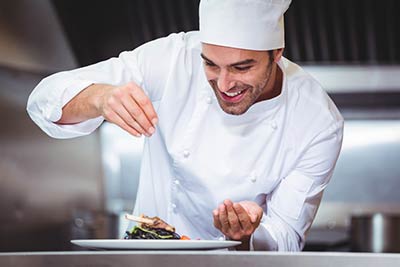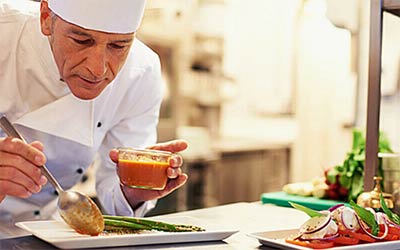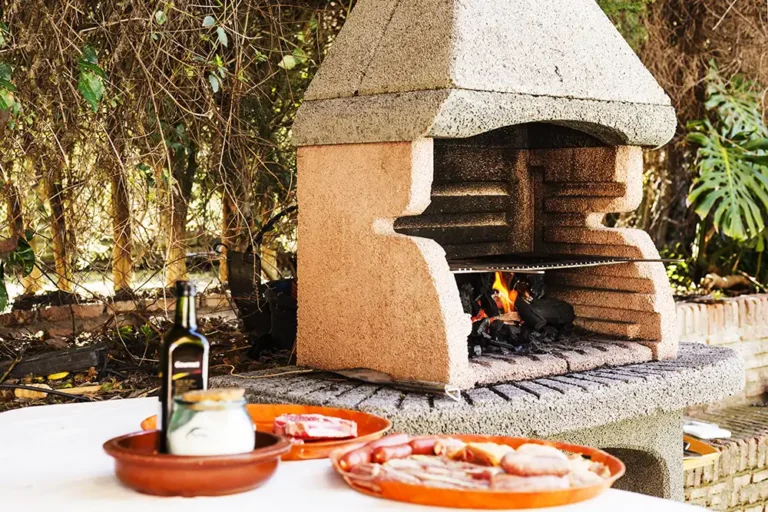Chef de Cuisine vs. Executive Chef: What Are the Differences Between Them?
Food is a form of art. A mouthful of a delectable dish in your favorite restaurant with your friends or significant other- sounds appealing! But have you thought about the opposite side of the coin?
Have you ever considered how this delectable food is delivered to you consistently while preserving its exquisite taste? From preparing the food to serving the plate, is there any room for error? The responsibilities of two primary positions in a professional kitchen appear here. Two designations are Chef de Cuisine and Executive Chef.
Some people mistakenly combine these two responsibilities. Nonetheless, it is not what the majority of people believe. As a result, our post is about Chef de cuisine vs. Executive chef; How do they differ?
So, if you have any misconceptions regarding these two well-respected employment titles in today’s professional kitchen, please join us in our discussion.
Who is an Executive Chef?
The executive chef (sometimes known as the head chef or chef manager) is more concerned with kitchen management than cooking. They are all highly skilled professionals with good academic records.
They are rarely involved in the actual cooking. Instead, they keep an eye on the kitchen’s flow and make sure everything is running well.
Besides, they keep a balance between food quality and budget. Also, strive to provide the most delightful taste at the lowest possible cost.

Responsibilities of an Executive Chef
The Executive Chef serves as the head of the kitchen. Most often, they are responsible for monitoring several small kitchens or larger facilities like in hotels, resorts, banquet halls, etc. They use their life-long culinary experience to collaborate with suppliers, manage food costs, and train staff. Thereby, securing consistency across the kitchen they manage. Their key responsibilities include-
- Innovate delicious menus that meet each kitchen requirement
- Organize a food preparation safety training plan for all kitchen employees that includes a safe handling process and safe sanitation
- Boost productivity, establish and maintain consistently high-quality standards, reduce food waste to a minimum by developing quality control procedures
- Collaborate with food and beverage managers and outside vendors and negotiate an adequate budget that meets food and labor cost
- Recruit and train new cooks
Undoubtedly, to perform this role, one must excel at professional experience both in cooking and managing.
Who is Chef De Cuisine?
Chef de Cuisine is a distinctive French title that is now used in several European kitchens. The representatives are in charge of creating menus, organizing whole culinary chores, inspecting cooking goods and their ingredients, and all other minor cooking details that any professional kitchen needs.
Plus, they supervise the other chefs to ensure that they are cooking adequately. Chef de Cuisine is the boss of a single kitchen.

Responsibilities of Chef De Cuisine
Chef de Cuisine works directly with the Executive Chef. But, their responsibilities often turn around a hands-on approach for meal service. Duties of a Chef de Cuisine includes-
- Interact with customers to know about interests and tastes
- Collaborate with vendors
- Play a role in menu planning and specials scheduling
- Emphasize recipe development
- Check the quality of foods
- Distribute workloads to subordinate chefs equitably
- Boost kitchen efficiency by appointing the right amount of work
- Plan menus with the sous chef or pastry chef and execute the menu
- Oversee all items, from cutlery to portion size
- Monitor line chefs and ensure that each item is plated to perfection
Executive Chef vs Chef de Cuisine – Key Differences
According to the American Culinary Federation Textbook, Culinary Fundamentals, they both are the same person. This textbook narrates Chef de Cuisine is French, and Executive Chef is English for the same post.
However, these are only theoretical statements. But, in practical terms, an Executive Chef differs from a Chef de Cuisine in the following ways.
- Area of work and control
Though Chef de Cuisine and Executive Chef both work in a professional kitchen, they function at two different levels.
For example, an Executive Chef controls all the affairs that occur within and outside the kitchen. Oppositely, a Chef de Cuisine only manages staff that operates in single facilities.
Similarly, an Executive Chef administrates much larger settings and multitasking facilities that run through the kitchen. But, the responsibilities of a Chef de Cuisine narrow to a single kitchen.
- Order of function
There are two types of elements that affect the functionality of a kitchen. Factors of short and long duration.
Now, guess who is in charge of long-term components?
An Executive Chef, of course!
Because he is the one who makes all of the key decisions in and out of the kitchen.Menu planning, cost and budget control, quality control service implementation, and food safety policy are just a few examples of important decisions.
A Chef de Cuisine, on the other hand, is in charge of the day-to-day operations of a professional kitchen. As a result, he makes short-term administrative choices. Chef de Cuisine organizes everything from preparing a delectable dish to serving the final plate.
- Hierarchy and monetary features
Both the Executive Chef and the Chef de Cuisine follow a kitchen hierarchy specific to their duties in the kitchen. Whether it’s establishing a new menu or combining different components, the Executive Chef oversees everything and gives the ultimate clearance.
An Executive Chef is normally paid more than a Chef de Cuisine in terms of monetary considerations. And, on average, the difference is $7000.
FAQs
Now, it’s time to answer some most frequently asked questions about these two entities.
Who is the most senior administrator? Executive Chef or Chef de Cuisine?
Chef de Cuisine is the most senior position in a tiny kitchen. In larger kitchens, however, they are second in command to an Executive Chef. In fact, the Executive Chef is at the very top of the kitchen management. The Executive Chef performs a greater administrative function in this position.
What is the average salary of an Executive Chef and Chef de Cuisine in the United States?
On average, an Executive Chef in the United States earns $72,917 yearly as of November 2021. But, the range may go high to $88,162 and may fall to $62,137. However, salary may vary according to skills, education, and certifications.
On the other hand, the salary of a Chef de Cuisine is much lower. The average amount is $53,000 yearly.
What skills do you need to become a Chef de Cuisine?
Different restaurants require different qualifications. However, typically you must complete a high school diploma or equivalent degree in culinary arts. Plus, a minimum of 3 years of experience managing shifts or stations in a food service establishment is needed. Completion of courses in nutrition, food safety, supervisory management will be an added advantage.
Final Words
The vast upliftment of the hospitality industry is highly dependent on culinary arts. Eating out is a trend now! And, the sense of satisfaction is fulfilled by the sophisticated cuisine of professional chefs.
And if you want to be a part of that, you need to get yourself acquainted with the top two positions of this world. And this executive chef vs chef de cuisine is a good place to start.
Each of them has a specific role to play in improving the functionality of a high-end kitchen. Both positions are prestigious since they pay close attention to the slightest details and grab them for improvement.






